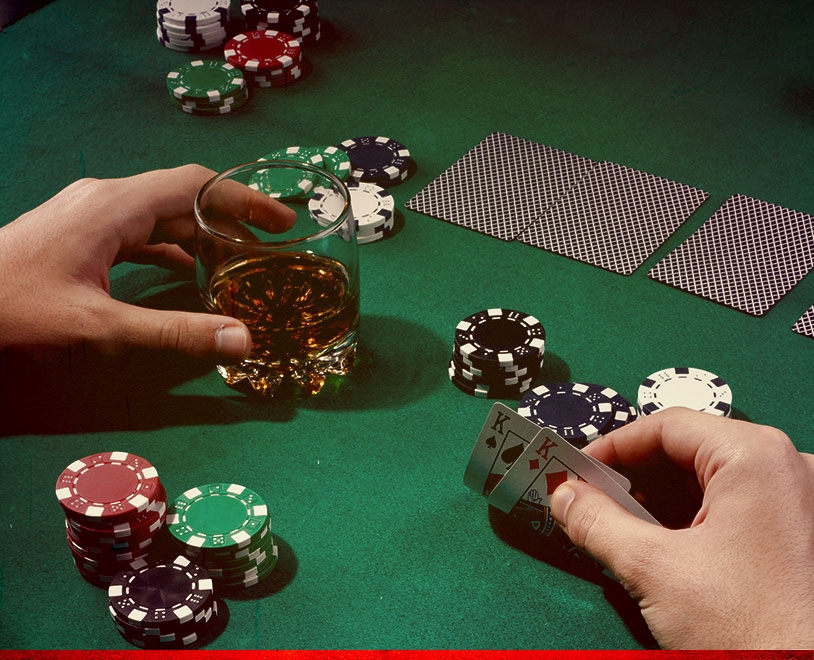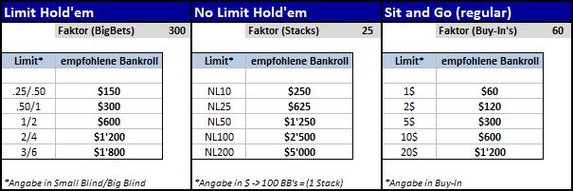No Limit Cash Game Bankroll Management: Adjusting for Winrate. Basic advice for bankroll management is pretty simplistic. You’ve probably heard people talk about never risking more than 5% of your bankroll at any one time – keeping about 20 buy-ins available for your stakes, moving down when necessary, and so on. A bankroll management with 10 buy-ins is really very aggressive, because in the cash game fluctuations in the range of 10 to 20 buy-ins are not uncommon and belong to the right grinder to the normal course. That’s why you really have to stick to the limits of this aggressive bankroll management if you fall below 10 buy-ins for a limit.
The most common question poker newbies ask is about bankroll management:
- How big should my bankroll be?
- How much money should I win before I move up?
- I can hock my mom’s wedding ring – is that enough to go pro?
So, we thought it was time to write up a bankroll management guide.
In all honesty, it should’ve been the first thing we published. Because managing a bankroll is one of the most important skills a poker player can learn – sort of like the life-skill of knowing how to balance a checkbook.
If you don’t learn how to do it, you could end up like one of those deadbeats you hear about on PokerNews.com. Like T.J. Cloutier, who reportedly sold one of his WSOP bracelets on eBay because “he lost more money playing craps that he ever made from playing poker.”
You don’t want to end up like that, do you?
Poker Bankroll Management Fixed Limited
Now, you might say he has a ‘gambling problem.’ And, you’d be right. But part of managing your bankroll is not blowing it after you leave the poker table.

“Hard as it is for some people to accept, most of our poker career takes place away from the poker table. If you spend a year building a bankroll, and then blow it one night on the crap table, you are a lousy poker player.”
– Steve Badger

But we’re getting ahead of ourselves. Let’s learn to crawl before we learn how to walk, yeah?
The question we’re going to answer in this guide is, how large should my poker bankroll be? And the best way to answer that is to figure out what variables and expenses your bankroll will need to cover.
Before we get into this, we want to point something out. It’s not going to matter how much money you have or what your bankroll management is like if you’re a losing player.
Poker Bankroll Management Fixed Limit Rules
Losing players are always going to lose money (even if it’s a slow bleed). The only way to fix this problem is to become a breakeven (or better) player.